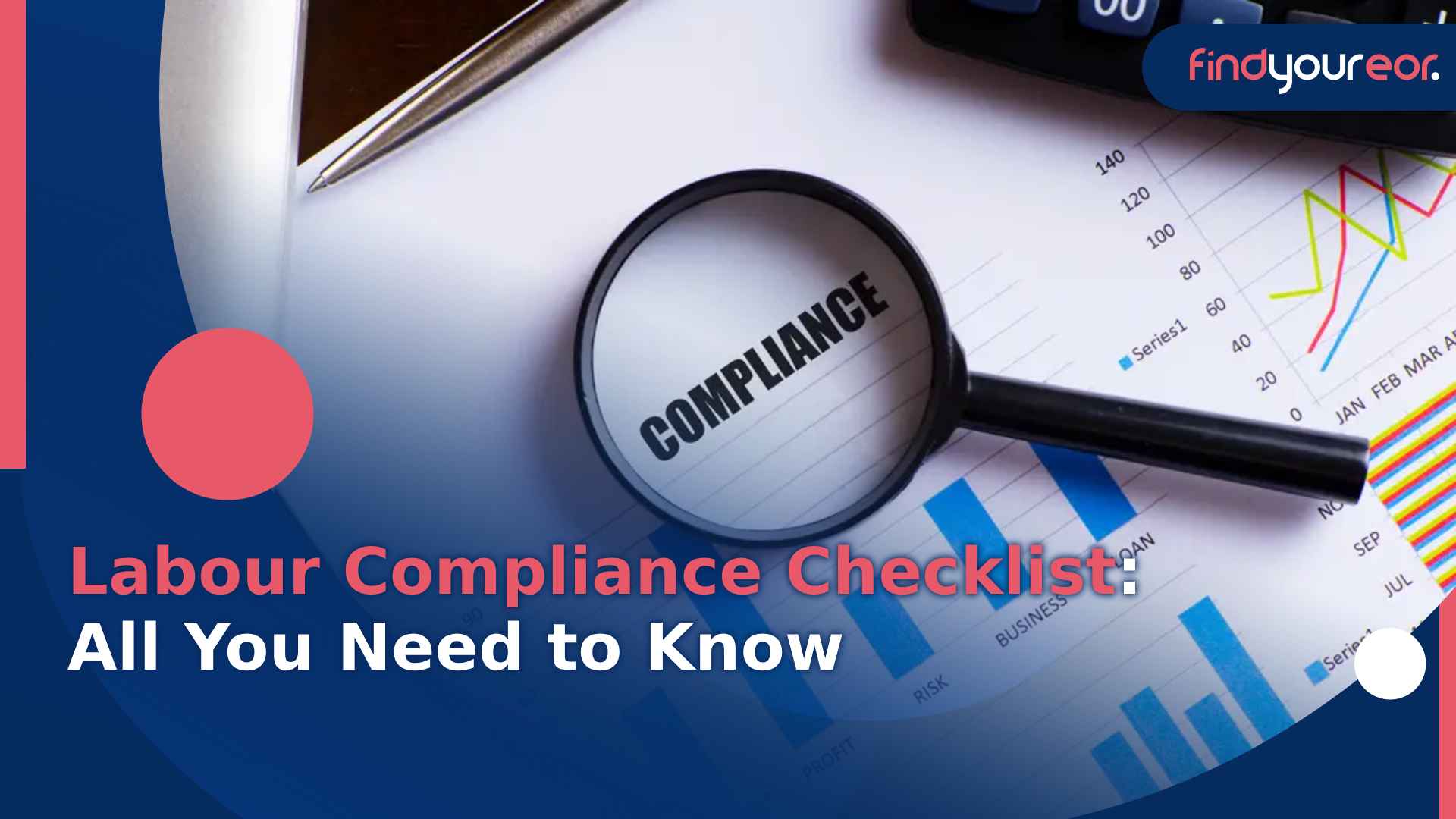Employer of Record Saudi Arabia: Why You Need It & How to Use It
Last update: April 5th 2024
Why do you need an employer of record Saudi Arabia provider? This article covers everything you should know.
Saudi Arabia boasts a diverse and skilled workforce, with professionals excelling in various industries. However, hiring specialists from Saudi Arabia involves handling complex visa procedures and compliance with local labor laws. To simplify this process, businesses can hire the services of a Saudi Arabia employer of record (EOR Saudi Arabia).
An EOR in Saudi Arabia assumes legal responsibility for employing workers on behalf of another organization, managing payroll, benefits, tax compliance, and ensuring adherence to regulations. This arrangement allows companies to focus on their core objectives while maintaining control over day-to-day operations.
By working with an EOR in Saudi Arabia, businesses can tap into the country's vast talent pool without dealing with the complexities of local employment regulations. This allows them to expand their global footprint and drive business growth.
How to Hire an Employer of Record Saudi Arabia: 5 Simple Steps
Hiring an employer of record Saudi Arabia service can simplify your international hiring process and guarantee compliance with local labor laws. Here are five steps to guide you through the process:
1. Research EOR Providers in Saudi Arabia
Start by researching potential EOR Saudi Arabia providers with experience in your industry and a solid reputation. You’ll want to look for providers who offer comprehensive services, such as payroll processing, benefits administration, compliance support, customer service, and smooth onboarding experiences. To make sure your business's information is secure, pay attention to data security and intellectual property protection. Consider comparing pricing plans to find a provider that aligns with your budget and needs, and make sure their pricing structure is transparent to avoid unexpected costs.
2. Meet with Potential EOR Providers
Schedule meetings with potential employers of record in Saudi Arabia to discuss your specific needs and their services. You can use this opportunity to ask in-depth questions about their experience and operations. Key questions to consider include:
- Do they have an entity in Saudi Arabia?
- What onboarding services do they provide?
- Can they deliver accurate employer burden calculations?
- How rigorous are their compliance processes?
- How seriously do they prioritize data security and intellectual property protection?
These discussions will help you evaluate the provider's compatibility with your business and determine if they can meet your specific needs.
3. Check for Global Coverage
An EOR provider with global coverage can benefit your business, especially if you plan to expand beyond Saudi Arabia. A provider with international experience can guide you through varying labor laws across different countries. Having one EOR provider for all your international employees can streamline your management processes and simplify communication, saving you time and effort.
4. Read Reviews and Contracts Carefully
Before making a final decision, read online reviews and opinions about the EOR provider. You can look beyond their own website for unbiased reviews. If possible, speak with current or past clients to gain insights into the provider's strengths and weaknesses.
Carefully review the contracts and agreements with your chosen provider, paying attention to details such as service levels, pricing, termination clauses, and any additional fees. Understand the terms and seek clarification on any ambiguities to prevent misunderstandings later.
5. Collaborate Closely with Your EOR Provider
After choosing your employer of record Saudi Arabia provider, establish a close working relationship with them. While they handle most HR-related tasks, their local expertise can benefit your business. Leverage their knowledge of the Saudi labor market to design competitive compensation packages and facilitate smooth employee transitions.
You’ll be working together to make sure your international team feels welcome and comfortable in your company. Open communication between you, your EOR Saudi Arabia provider, and your employees is essential for a successful partnership. This collaboration will help create a positive experience for your international team and maximize the benefits of working with an EOR provider.
What are the Benefits of Using an Employer of Record in Saudi Arabia?
Employing an employer of record in Saudi Arabia offers numerous advantages for businesses seeking to expand into the Saudi Arabian market. By entrusting the legal responsibilities of employment to an EOR, companies can streamline operations, ensure compliance with local regulations, and focus on their core business objectives. Below are some of the key benefits of hiring EOR services in Saudi Arabia:
Compliance Assurance
One of the primary benefits of partnering with a Saudi Arabia employer of record is guaranteeing compliance with the country's labor laws, immigration regulations, and tax requirements. Saudi Arabia has strict employment laws that govern various aspects of the employer-employee relationship. These include contracts, working hours, and benefits. By collaborating with an EOR in Saudi Arabia, businesses can easily navigate these regulations, avoiding legal complications and penalties.
Efficient Onboarding Process
Employing workers in Saudi Arabia involves extensive paperwork, visa processing, and legal procedures. An employer of record Saudi Arabia provider streamlines the onboarding process by handling all administrative tasks, such as visa applications, work permits, and payroll setup. This allows for a smooth and efficient onboarding experience for the employer and the employee, minimizing delays and disruptions.
Flexibility and Scalability
Using EOR Saudi Arabia services allows businesses to scale their operations in Saudi Arabia quickly and efficiently. Be it expanding into new markets, launching projects, or hiring seasonal workers, an EOR can adapt to changing business needs and facilitate growth without establishing a legal entity or infrastructure.
Risk Mitigation
Operating in a foreign market like Saudi Arabia has inherent legal, financial, and reputational risks. By outsourcing employment-related tasks to an EOR, businesses can mitigate these risks and protect their interests. EORs have the expertise and resources to handle compliance issues, employment disputes, and regulatory changes, safeguarding businesses from potential liabilities and disruptions.
Local Expertise and Support
Partnering with an EOR Saudi Arabia provides access to local expertise and support, which is invaluable when navigating the nuances of the Saudi Arabian business environment. EORs have in-depth knowledge of local customs, culture, and business practices, enabling them to provide tailored solutions and strategic guidance to their clients. This regional support enhances operational efficiency, minimizes cultural misunderstandings, and fosters long-term success in the Saudi market.
Employing an employer of record in Saudi Arabia offers businesses a strategic advantage in navigating the complexities of the Saudi Arabian market. From ensuring compliance and efficiency to mitigating risks and accessing local expertise, EOR services empower businesses to expand their global footprint confidently and easily.
Hiring in Saudi Arabia
When hiring staff in Saudi Arabia, it's essential to adapt your practices to local customs and regulations. Here are some best practices to consider:
Use of Local Language and Currency
All communications, including contracts and offer letters, should be in Arabic. This includes stating monetary amounts in Saudi riyals to meet local currency preferences and regulations.
Leveraging Networking and Recommendations
In Saudi Arabia, personal recommendations play a major role in recruitment. Take advantage of your professional connections and networks to source talented individuals, including passive candidates. Online advertisements and social media postings can complement traditional recruitment methods.
Understanding Regional Differences in Saudi Arabia
Saudi Arabia consists of distinct regions, each with its customs and regulations. It’s important that you conduct thorough research on your chosen area to understand local practices and preferences, seeking expert advice when necessary.
Consideration of Saudization Policies
Due to Saudization initiatives, there may be a high percentage of Saudi nationals in candidate pools. However, many prefer the public sector, leading to a majority of expatriate applicants in the private sector.
Navigating Visa Sponsorship in Saudi Arabia
Businesses can sponsor work visas and residence permits for expatriate employees. However, this process can involve substantial costs and administrative complexities. To streamline the hiring process, consider recruiting international employees with existing work permits and visas.
By understanding and following these hiring best practices, businesses can effectively go through the recruitment process in Saudi Arabia and build a talented and diverse workforce.
Key Regulations to Be Informed About When Employing Staff in Saudi Arabia
When employing staff in Saudi Arabia, it's crucial to understand and comply with the country's Labor Law and regulations. Here are key rules to be aware of:
Saudization Policies
- Employers must adhere to Saudization policies, which aim to increase the employment of Saudi nationals in the private sector. This includes making sure a certain percentage of the workforce consists of Saudi nationals, as determined by government quotas.
- The Nitaqat scheme categorizes companies based on their compliance with Saudization quotas, with different classifications determining privileges for obtaining visas and residence permits for foreign workers.
Hiring Foreign Nationals
- Foreign nationals must have valid work permits and visas sponsored by a Saudi Arabian employer to work there.
- Employers must obtain block visas from the Ministry of Human Resource and Social Development and authorization from the Ministry of Foreign Affairs to hire foreign nationals.
Discrimination Laws
- Saudi labor laws prohibit discrimination in recruitment based on factors such as sex, disability, or age.
- Employers who violate these laws may face fines from the Ministry of Human Resource and Social Development.
Employment Contracts
- Employment contracts should be in writing and in the Arabic language, with each party retaining a copy. Contracts must be uploaded to an online portal managed by the General Organisation for Social Insurance (GOSI) for authentication.
- Any clause in an employment contract that contradicts labor laws is considered void.
Trade Unions
- While trade unions are not explicitly recognized by Saudi labor law, labor committees can be formed in workplaces with over 100 Saudi nationals as employees. These committees serve as the sole authorized form of employee representation.
Health and Safety Regulations
- Employers must prioritize employee safety by implementing necessary precautions to protect against hazards, occupational diseases, and machinery risks.
- Specific obligations include maintaining a clean and hygienic workplace, providing personal protective equipment, and arranging regular medical examinations for employees exposed to occupational diseases.
Leave Entitlements in Saudi Arabia
In Saudi Arabia, employees are entitled to various types of leave as mandated by the country's labor laws. Here's an overview of the different types of leave available:
Annual Leave
- Employers must provide 21 days of paid annual leave per year to employees.
- After five consecutive years of employment, annual leave increases to 30 days.
- All annual leave should be granted at the beginning of the year, with employees requiring permission before taking time off.
Sick Leave
- Employers are obligated to provide 90 paid sick days to employees.
- Paid sick leave is provided at full wages for the first 30 days and three-quarters of the employee’s normal wage for the remaining 60 days.
- Employees can receive an additional 30 days of unpaid sick leave if they have exhausted all paid sick days.
Student Leave
Student workers are entitled to paid leave on examination days, provided they are not repeating a school year.
Maternity and Paternity Leave
- Female employees are entitled to ten weeks of paid maternity leave, with four weeks prior to the due date and six weeks after childbirth.
- Male employees receive three days of paid parental leave.
- Maternity leave entitlements vary based on the length of employment and are paid accordingly.
Marriage and Bereavement Leave
- Newly married employees receive three days of paid leave, while bereavement leave is granted for up to five days in the event of the death of a spouse or child.
- Female employees may be entitled to additional paid leave if their husband passes away, depending on religious customs.
Hajj Leave
Saudi workers who have not made the pilgrimage to Mecca and Medina are entitled to 10 to 15 days of paid leave to perform the Hajj.
Payroll Taxes in Saudi Arabia
In Saudi Arabia, the federal government is responsible for enacting laws related to social taxes, including contributions to the social insurance system. Here's what you need to know about payroll taxes in the Kingdom:
No Personal Income Tax
One notable aspect of payroll taxes in Saudi Arabia is the absence of personal income tax. Unlike many other countries, individuals working in Saudi Arabia do not have to pay income taxes.
Employer Contributions
Employers in Saudi Arabia must contribute to the social security system, which provides old age, disability, and survivor benefits. These contributions are calculated daily and are charged at the following rates:
- 12% for employees who are Saudi nationals
- 1.5% for employees who are foreign nationals
These contributions are based on minimum earnings of 400 SAR and maximum earnings of 45,000 SAR. Employers must assess these contributions based on monthly remuneration, including basic wage, housing allowance, and commission payments.
Employee Contributions
Employees in Saudi Arabia also contribute to the social security system. The employee contributions are as follows:
- Social insurance: 9%
- Unemployment insurance: 1%
These contributions help fund the social security system, supporting workers in need. By understanding and complying with payroll tax regulations in Saudi Arabia, employers can guarantee proper financial management and compliance with government requirements.
Consequences of Missteps
Failure to adhere to the Saudi labor code can result in severe consequences for businesses operating in the Kingdom. Violations such as inadequate observance of rest periods, annual leave entitlements, exceeding overtime limits, underpayment of employees, or non-compliance with Nitaqat status requirements can lead to legal disputes and fines imposed by labor courts.
To avoid these risks and ensure compliance with labor laws, companies must have a robust HR and compliance team or partner with external legal experts who are well-versed in local regulations. Working with an experienced employer of record in Saudi Arabia streamlines legal and administrative employment tasks, minimizing the likelihood of violations and associated penalties.
By delegating these responsibilities to professionals, businesses can focus on their core operations while maintaining legal compliance in managing talent in Saudi Arabia.
Choose EOR Worldwide for Saudi Arabia EOR Services
Ready to expand your business into Saudi Arabia? Partner with EOR Worldwide, your trusted employer of record Saudi Arabia partner, to streamline your international expansion journey. Our comprehensive EOR Saudi Arabia services guarantee compliance with local regulations, efficient onboarding processes, and access to top talent in the Saudi market.
With our expertise and support, you can focus on growing your business while we handle the administrative complexities of hiring and managing employees in Saudi Arabia. Let EOR Worldwide be your strategic partner in unlocking opportunities and driving success in the Saudi Arabian market. Get started today and experience the benefits of partnering with a global leader in EOR services.



















